The two most important components of the Assessment day are the Psychological and Defence Interviews. While these two interview cover a lot of the some topics they do have different objectives from a recruiters point of view. In this blog post we will cover the Defence interview and everything you should know to succeed. Even after reading this blog post and having a good idea about what to know the biggest tips we can give you is that the more you can learn about the ADF and your career path the better you will do.
The majority of questions are very common and easy to find the answers to. Almost all of the information you need to pass the Assessment day is provided on either the Defence Jobs Website or the Website for your chosen service (Army, Air force, Navy). The following questions are almost guaranteed to be asked, so find the answer specific to your job and learn them!
Before we start the with what you should know here is our biggest tip: RESEARCH AND LEARN AS MUCH AS YOU CAN. Our blog posts will help you gain an understanding about what information you should learn, but what happens if the interviewer decides to test you and asks you to go into more detail/elaborate? If you have not sufficiently prepared then you will be unable to answer them. The more you read through all the information available and learn about defence the more comfortable and confident you will be talking about it in a interview.
Standard Questions
- What is your preferred job role?
- Know the job definitions. i.e. Infantry: The role of the Infantry is to seek out and close with the enemy, to kill or capture him, to seize and hold ground, repel attack, by day or by night, regardless of season weather or terrain.
- Talk to someone who is currently serving in your preferred job role, this can be arranged via DFR before the assessment day.
- Get an understanding about their typical work day, what the biggest challenges are and what are the more enjoyable aspects of the job.
- It is this information and understanding that you can rely upon to formulate your answers during the defence interview. For example “The role of the Infantry is {standard Defence job definition}, however I spoke to CPL Davies from 2 RAR who explained the role as being like…”
- Why do you want to join the ADF?
- Obviously this must be an answer that is personal to you. Ensure that you develop your answer before the interview and are able to describe your reasoning professionally and effectively. A large number of candidates always forget to develop answers for the most obvious questions. Do not be that person.
- Key Points:
- Challenging (physically/mentally)
- Not Regular 9-5 Job
- Skills you can learn
- Lifestyle
- Service
- Pride
- Career Opportunity
- Example Answer: Joining the ADF is something that has been very appealing to me for a long time, more so as I have become older. I am attracted to work in the ADF for a number of reason; I see the career progression a career presents, the service I can give, all the skills I can learn, and the experiences that can help me grow as a person. Above all I find the lifestyle the most appealing factor, not being a regular 9-5 job, the mixture of a challenging physically active lifestyle and overcoming mental challenges that come with training and working in the ADF.
I have developed my understanding of the ADF through talking with friends, family and doing my own research. This has allowed me to gain a good idea about what I am applying to be a part of and what I could be committing to.
- Why Army/Air Force/ Navy?
- Example: The training, development, career progression, future career options, and operational environment best suits what I enjoy doing. This service is what will push me and allow me to learn the most and where I can make my most significant contributions to the Australian Defence Force. I agree with and want to be a part of and work with those who share the values of [insert your service values here. i.e. courage, initiative, respects etc…]
- What is the role of the Army/Air Force/ Navy?
- What are the values of your service?
- How much do you get paid? – Know pay for both during and after training
- Answer: Defence Jobs Website or the Salary Scales
- What is the Basic Fitness Assessment and what are the fitness requirements for this role?
- Answer: Defence Jobs Website
- Look for what you need during the PFA – Push-ups, Sit-ups, and Beep Test.
- BFA – Push-ups, Sit-ups, 2.4km Run
- What will be your Initial Period of Service?
- How long do you have to sign up for?
- Answer: Defence Jobs Website
- What is a ROSO? (Return of Service Obligation) and What is IMPS? (Initial Minimum Period of Service)
- How long is your Basic Training? and Where is it?
- Answer: Defence Jobs Website
- OR: 80 Days, Kapooka, Wagga, NSW
- Officer: 6-7weeks ICT (Initial Cadet Training), RMC/Majura, Canberra
- What will Basic/ICT be like?
- Answer: Defence Jobs Website
- Obviously no phones, busy days, learning the basics of soldiering.
- You can find a typical day schedule online – 0600 Reveille – through to – 1000 lights out.
- What is your IET (Initial Employment Training)? Where is it? For how long? What will it be like? What Corps will you be a part of?
- This is your Corps specific Training, know all the details about it and what it will be like
- ORs do this after Kapooka, Officer entry after 18months at RMC.
- This is your Corps specific Training, know all the details about it and what it will be like
- Where will you be posted?
- Answer: Defence Jobs Website
- Answer: Service Website (Army, Air force, Navy)
- Regardless of your job learn where all the bases around Australia are, learn what units (specific to your job) are located there.
- E.g. for an Army Infantry candidate your answer might look like –
- “After the IMT and IET I could be posted to any infantry unit across the country, 1st Brigade at either Robertson Barracks in Darwin or RAAF Williamstown in Adelaide to 5RAR or 7RAR. To 3rd Brigade in Townsville with 1 RAR, 2 RAR (Amphibious), or 3 RAR. To 7th Brigade at Enoggera in Brisbane to 6 RAR or 8/9 RAR. Where I get posted largely depends on where Army needs me, I do get to note which unit I would most like to be posted to during IETs but i recognise that this is only taken into consideration and not guaranteed.
- Name some Bases around Australia
- Answer: Military Bases
- Answer: Service Website (Army, Air force, Navy)
- What is a normal day during training? What is a normal day after IMT and IETs.
- Answer: Average day at Kapooka
- Answer: Average day at RMC
- All this information can be found on service websites (Army, Air force, Navy)
- Answer: Average day post IETs – Contact DFR and arrange to talk to a serving member in the position you are applying for.
- What will you learn during training?
- Example Answer: At basic training you will learn field craft, navigation, Drill, first aid, weapons handling, dress and Communications You will also learn how to wear your uniform correctly, maintain you’re personal equipment and room to the standard required by the Army. But most importantly you will learn teamwork, initiative and discipline. During basic training you will participate in many PT sessions where you must reach a set standard. Your time will also be spent in barracks receiving theory and practical instruction.
- Answer: Service Website (Army, Air force, Navy)
- What are some equipment used in your position? (Army applications know a larger range)
- Army Weapon and equipment
- Air-force Equipment – RAAF also know all the different aircraft and the specifications
- Navy – Learn weapons and Vessels.
- Note: This section is important, your ability to talk about weapons, vehicles/aircraft/ships and specifications of each shows actual interest in the ADF and a willingness to put in the effort and learn about your chosen role and service.
- What are some current operations that the ADF (or your service) is involved in?
- Answer: ADF Operations
- Be able to name operations your service and others services are involved in and what they’re doing.
- What can you offer the Army/Air Force/ Navy
- Example Answer: I am a decisive, loyal, enthusiastic, hard working and proactive person who enjoys working as a part of a team. I understand and will respect the ADF’s expectations, traditions and core values.
- What will your Career Progression look like?
- What Courses can you go on?
- After how long, if competent, could you receive a promotion?
- For ORs what is JLC?
- For Officer candidates what is ROBC, ROC, ROAC?
- To get these answers you will have to speak to a serving member prior to the Assessment Day interview.
- What are the potential operating environments for the job you are applying for?
- What are the employment conditions for you job? What are some of the positive and negatives of the job?
- What does you family think of the application?
- What is Unconditional Service?
- Answer: Summary – Means that defence sends members to locations based of the needs of the organisation, this might now always suit your needs or wants.
- What is the ADF policy on Drugs and Alcohol?
- Zero Tolerance
- What is the ADF policy on Harassment and Abuse?
- Zero Tolerance
- Will you be able to meet the Fitness Standards of the ADF?
- Answer: Yes, I have been doing a lot of training and a ADF fitness training program.
- What is the DFDA?
- Answer: The Defence Force Disciplinary Act. As a member of the Australian Defence Force you are subject to military law.
- A separate system of military justice is essential to enable the Defence Force to deal with matters that pertain directly to the discipline, efficiency and morale of the services. To maintain the Defence Force in a state of readiness, the services must be in a position to enforce internal discipline effectively and efficiently. Breaches of services discipline must be dealt with speedily and, sometimes, more severely than would be the case if a civilian engaged in such conduct.
- Who is the Minister of Defence?
- Answer: Minister
- Who is the Chief of the Defence Force(CDF)?
- Answer: Defence Leaders
- Who is the Vice Chief of the Defence Force (V-CDF)?
- Answer: Defence Leaders
- Who is the Chief of the Army(CA), Chief of Air Force(CAF) and Chief of Navy (CN)?
- Answer: Defence Leaders
- Who is the Vice Chief of the service you are applying for?
- What are you Strengths?
- Good Answers: Willing to work hard, get along with people, proactive, quick learner, loyal, and organised
- What are you Weaknesses?
- Good Answers: I spend to much time working on tasks trying to get them right, or I am particularly hard on myself when I don’t meet my own high expectations.
Officer Candidates:
- What is Leadership?
- Develop your own Answer! This is a very basic question for someone looking to lead others, you need to have a strong understanding of what leadership is and how you have exhibited leadership in the past.
- Answer: Leadership is “The capacity and the will to rally men and women to a common purpose and the character which will inspire confidence. Based on a moral authority and based on the truth.” – Field Marshall Montgomery
- Read up and mention in the interview John Adair’s Action centered leadership and here.
- All about understanding and prioristising the needs of the team, the task and the individuals.
- Learn about the Hersey-Blanchard Situational Leadership Theory.
- Both John Adair’s model and the Hersey-Blanchard model is taught to officers during promotion courses and is worth learning and maybe even mentioning when discussing leadership during the OSB (Officer Selection Board)
- What is Management?
- Again read up and develop your own understanding and live by it!
- Answer: PASS – Planning, Administration, Supervising and Scheduling
- Where have you demonstrated leadership?
- Use example from past experiences. This can be anything from lifting the team and keeping them focused during a weekend sport to encouraging others to do a some over-time to get a task completed at work.
- Where have you demonstrated Management?
- Relate it back to PASS (see above)
- Planning of school/university group projects, of events or holidays with friends and family etc…
- What Corps will you be apart of? What will your role be?
- Specific to your service.
- RAAF Logistics officer for example, learn your training period, pay, location, job role, combat role etc…
- Army – Do not get assigned a Corps as a GSO until the end of training. So learn about a number of Corps that you are interested in and there training/posting locations, time frames, job roles, combat role.
- Example (ARMY): The ROBC (Regimental Officer Basic Course) for the Infantry is 11 Weeks and aims at qualifying newly commissioned Lieutenants against the Corps requirements for command of a Platoon. The course is conducted at the School of Infantry, Lone Pine Barracks, Singleton, NSW. The course is broken up into two modules. Module one is the operations component and module two is the range qualification component. [This is just an example, we recommend learning information of training for at least 2 corps]
- What is the Role of an Officer?
- To Lead, manage, and positively influence other to achieve important objectives. Develop individual, team and unit capabilities. An Officer is a leader who should bind a team together. They make difficult decisions, sometimes being required to ‘look up’ and sometime required to ‘look down’.They make decisions (clear and educated) and stick to it, provide the result and outcome for all involved. They are decisive.Team is a necessity in the forces, Officers need to be honest with yourself and those around you. To ensure team unity and synergy.An Officer assumes responsibility. They instill the values and expectations of the ADF and the Army into those they lead, they do this by setting an example. “People are your most valuable asset”.“Leadership is not about direct control but a belief in the initiative and resourcefulness of the led.” – ADF Leadership Doctrine.
- U.S Commander of 1st SFOD–D (commonly referred to as ‘Delta’) wrote a book called “The Mission, the Men, and Me” where he outlined lessons learned through out a career as a commander in a Tier 1 Special Forces Unit. There are many great lessons that can be taken from what he says, arguably the most important lesson is in the title. His method for prioristing was simple, the mission first, the men and then himself. If the mission was not successful then his priority was the special forces operators he was responsible for. To be an Officer does not mean being a boss it means being responsible for everyone else safety, development and morale.
- Why should you be aloud to lead?
- Approach this answer with confidence not arrogance.
- Example: I have the capacity to lead and to lead well. I am able to make a decision and stick to it, I can assess a situation and respond with an appropriate course of action. I work well with others and am often someone who turns the group of people into a team which can work together to achieve an objective. I have a desire to lead and enjoy taking on responsibility of positively influencing others in order to achieve a mission.
- Why do you want to lead?
- No help here, you should know why or be able to develop a real reason behind your motivations.
Bonus:
- Learn Badges of Rank
- Learn Positions and their roles – What is a CO, OC, RSM, CSM, Platoon SGT, Platoon Commander, Section Commander, Section 2IC, Adjutant
- Structure of the ADF – not essential to know by any means by learning extra never hurts, particularly if you can explain this in the interview.
- Learn the organisational structure:
What from Platoon/Troop, Company/Squadron, Battalion/Regiment, Brigade, Division etc… – When and for who do you refer to a troop rather than a Platoon?
If you are able to formulate detailed answers for all of the above questions then you are doing well. Remember the purpose of the defence interview is for a defence members to gain a better understanding of who you are, how suitable you are and how motivated you are to join and be a part of the Australian Defence Force. For advice on the other major component of the Assessment Day, the psychologists interview, stay tuned for our next recruitment blog post.
Remember to read Part 3: Assessment Day – The Psychological Interview
Note: The advice given throughout the Recruitment blog series is based of the ADF Fitness experience and may not be relevant to you. Our experience with the recruitment process, which occurred over different periods, will not necessarily match your recruitment process. This should not be read and used with any expectation that you will pass the recruitment process. By reading this blog post you agree to not hold ADF Fitness responsible. We disclaim any liability from and in connection with content on this blog.
Joining the ADF? We can help
Programs to suit all levels of training to help achieve your fitness goals and achieve tangible results

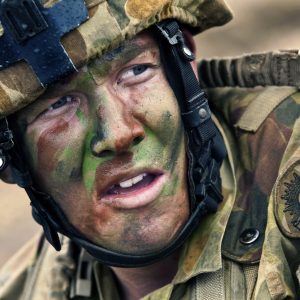

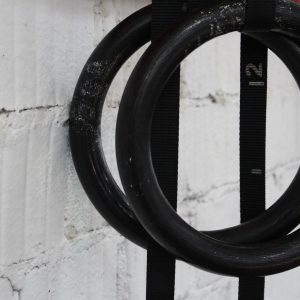
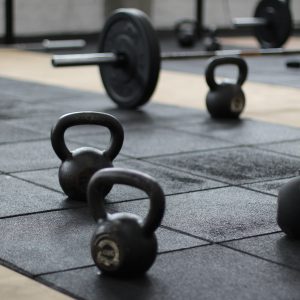

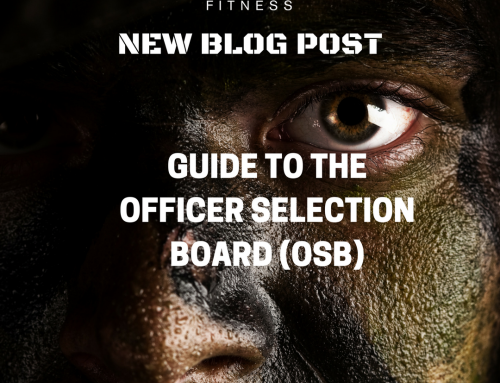
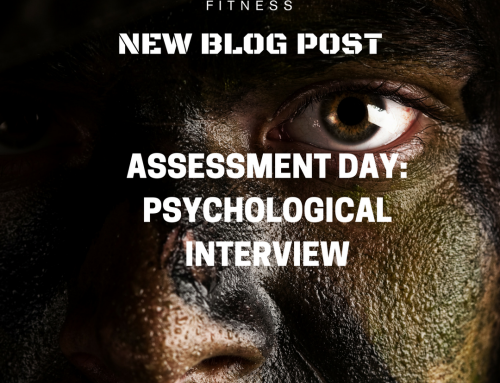

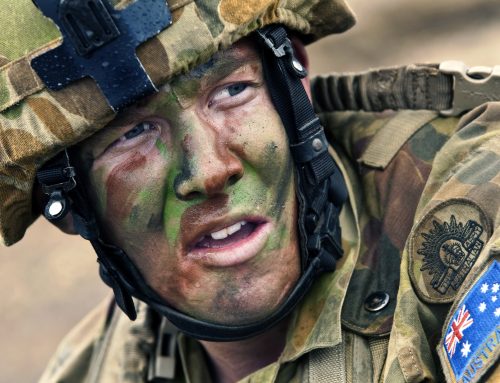
[…] Some content in this article can also be read in the Defence Interview article. You will often find that half the questions you are asked in the defence interview will […]